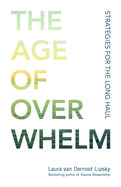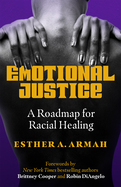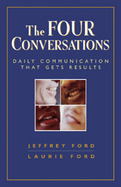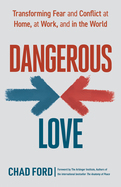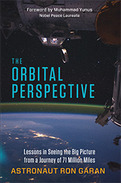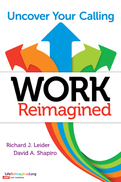2018
2022
In this groundbreaking book, Esther Armah argues that the crucial missing piece to racial healing and sustainable equity is emotional justice-a new racial healing language to help us do our emotional work. This work is part of the emotional reckoning we must navigate if racial healing is to be more than a dream. We all-white, Black, Brown-have our emotional work that we need to do. But that work is not the same for all of us.
This emotional work means unlearning the language of whiteness, a narrative that centers white people, particularly white men, no matter the deadly cost and consequence to all women and to global Black and Brown people. That's why a new racial healing language is crucial.
Emotional Justice grapples with how a legacy of untreated trauma from oppressive systems has created and sustained dual deadly fictions: white superiority and Black inferiority that shape-and wound-all of us. These systems must be dismantled to build a future that serves justice to everyone, not just some of us. We are the dismantlers we have been waiting for, and emotional justice is the game changer for a just future that benefits all of us.
• Explores how even small changes in the way we talk with one another can produce extraordinarily positive outcomes
• Describes how to get maximum results from four types of conversations we use every day
• Research-based and practical, with sample dialogues and personal stories that show how to put the four conversations into practice
Talk is powerful. Engaging in the right conversation at the right time is key to both personal and organizational success. And it isn’t just ‘difficult’ conversations that matter. The Four Conversations clearly demonstrates it is the everyday dialogue we have with one another that is critical.
Armed with a solid body of research and their own first-hand observations, Jeffrey and Laurie Ford identify four types of conversations that every one of us must use to get things done: initiative conversations to introduce something new; understanding conversations to help people relate to new ideas or processes; performance conversations to request specific actions and results; and closure conversations to complete work and give people a sense of accomplishment . They identify the specific elements that make each of these conversations successful and show how they can be put together in different ways to achieve different objectives.
The Four Conversations demonstrates how to use the right conversation at the right time—planning and starting each one well, and finishing every conversation effectively—to produce the results we want and the improved productivity our organizations need. And through dozens of personal stories and sample dialogues, the authors illustrate how real people in real situations have used the four conversations, either alone or in combination, to more effectively combat common workplace problems and lay the foundations for enduring success: stronger relationships, better buy-in, and a greater feeling of personal and professional achievement for everyone.
2020
-Steve Kerr, Head Coach, Golden State Warriors“Chad Ford reminds us that humanity lies within all of us, and although conflict is everywhere in today's world, we have the tools we need to overcome obstacles and to thrive. This is a fantastic, timely book that I highly recommend."
-Steve Kerr, Head Coach, Golden State Warriors
Knowing how to transform conflict is critical in both our personal and professional lives. Yet, by and large, we are terrible at it. The reason, says longtime mediator Chad Ford, is fear. When conflict comes, our instincts are to run or fight.
To transform conflict, Ford says we need to turn toward the people we are in conflict with, put down our physical and emotional weapons, and really love them with the kind of love that leads us to treat others as fellow human beings, not as objects in our way. We have to open ourselves up with no guarantee that anyone on the other side will do the same. While this can feel even more dangerous than conflict itself, it allows us to see the humanity of others so clearly that their needs and desires matter to us as much as our own.
Ford shows dangerous love in action through examples ranging from his work in the Middle East to a deeply moving story about reconciling with his father. He explains why we disconnect from people at the very time we need to be most connected and the predictable patterns of justification and escalation that ensue. Most importantly, he gives us a path to practice dangerous love in the conflicts that matter most to us.
On space walks and through windows, Garan was struck by the stunning beauty of the Earth from space but sobered by knowing how much needed to be done to help this troubled planet. And yet on the International Space Station, Garan, a former fighter pilot, was working work side by side with Russians, who only a few years before were “the enemy.” If fifteen nationalities could collaborate on one of the most ambitious, technologically complicated undertakings in history, surely we can apply that kind of cooperation and innovation toward creating a better world. That spirit is what Garan calls the “orbital perspective.”
Garan vividly conveys what it was like learning to work with a diverse group of people in an environment only a handful of human beings have ever known. But more importantly, he describes how he and others are working to apply the orbital perspective here at home, embracing new partnerships and processes to promote peace and combat hunger, thirst, poverty, and environmental destruction. This book is a call to action for each of us to care for the most important space station of all: planet Earth. You don't need to be an astronaut to have the orbital perspective. Garan's message of elevated empathy is an inspiration to all who seek a better world.
2015
It's the end of work as we know it. Career paths look nothing like they did in the days before phones got smart. We work more hours at more jobs for more years than ever before. So it's vital that we know how to find work that allows us to remain true to who we are in the deepest sense, work that connects us to something larger than ourselves—in short, our “calling.” We all have one, and bestselling authors Richard Leider and David Shapiro can help you uncover yours.
Through a unique Calling Card exercise that features a guided exploration of fifty-two “natural preferences” (such as Advancing Ideas, Doing the Numbers, Building Relationships, and Performing Events), Leider and Shapiro give us a new way to uncover our gifts, passions, and values and find work that expresses them. Along the way, they mix in dozens of inspiring true stories about people who have found, or are in the process of finding, their own callings.
Uncovering your calling enables you to experience fulfillment in all aspects and phases of your life. And here's the even better news: you'll never have to work again. When you choose to do what you are called to do, you're always doing what you want to do. Work Reimagined offers an enlightening, effective, and entertaining approach to discovering what you were born to do, no matter your age or stage of life.


